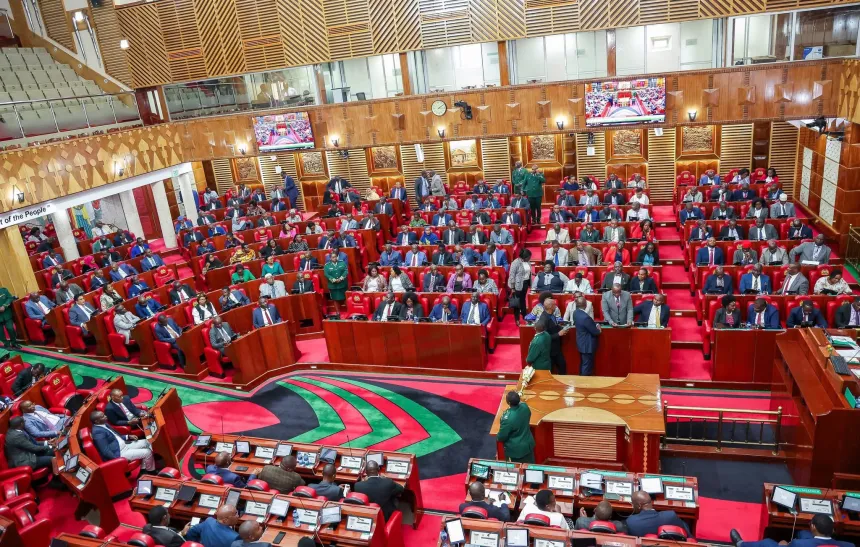The Senate has officially taken the first step in its long-running quest for greater authority by drafting a constitutional amendment bill aimed at transforming it into a more powerful upper house. Sponsored by Senate Majority Leader Aaron Cheruiyot and Minority Leader Stewart Madzayo, the bill seeks to expand the Senate’s legislative influence and strengthen its role in national governance.
The proposed amendment was unveiled during a closed-door kamukunji session chaired by Speaker Amason Kingi. Developed by a team of legal experts led by Senator Hillary Sigei (Bomet), the draft bill also includes input from senior counsels Tom Ojienda (Kisumu) and Okong’o Omogeni (Nyamira), as well as Senators Edwin Sifuna (Nairobi) and Catherine Mumma.
If adopted, the bill would give the Senate veto power over legislation, allow it to participate in the budget-making process, and grant it oversight in the vetting of key state officers, including Cabinet Secretaries. These changes would address what senators say is a chronic imbalance of power between the two houses of Parliament.
Currently, the Constitution bars the Senate from handling money bills legislation that deals with taxation, public expenditure, or borrowing giving the National Assembly exclusive control. Senators have voiced frustration over the dismissal of their bills on the grounds that they touch on financial matters, only to see similar proposals reintroduced by National Assembly members.
The move by the Senate comes as the National Dialogue Committee (Nadco) spearheads its own constitutional reform package, supported by both President William Ruto and opposition leader Raila Odinga. The Nadco Bill proposes sweeping changes, including the creation of a Prime Minister’s position, two deputies, and an Official Opposition Leader. It also aims to formalize key development and oversight funds, including one for the Senate.
Any amendments affecting the role of Parliament, devolution, or other critical constitutional areas will require a national referendum under Article 255 of the Constitution. As both houses advance separate reform agendas, a potential legislative showdown looms, with far-reaching implications for Kenya’s political and governance structures.

